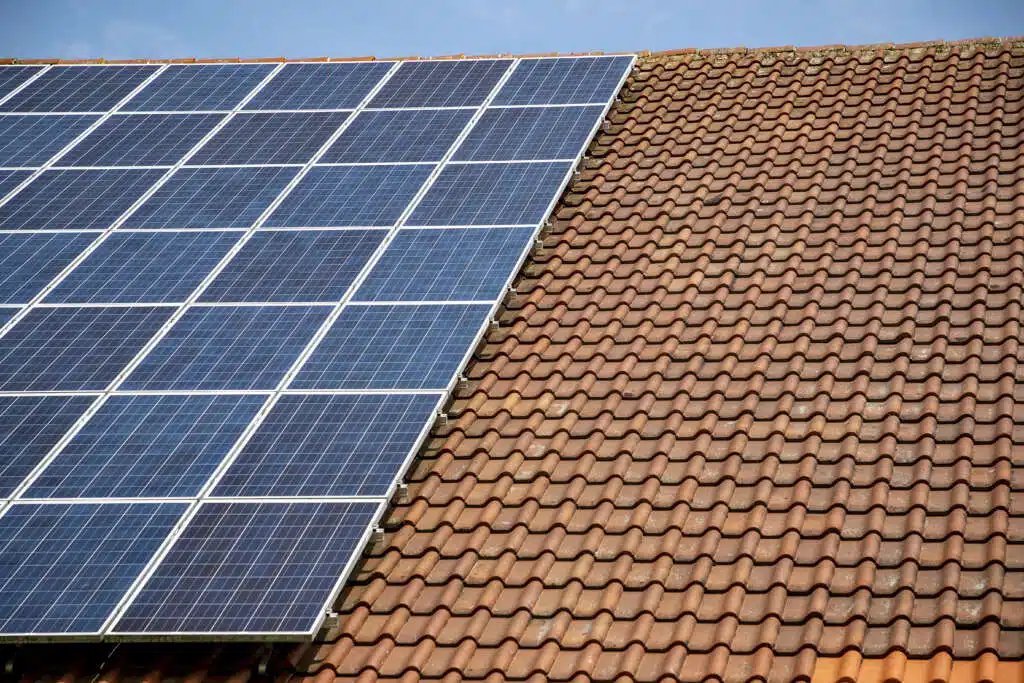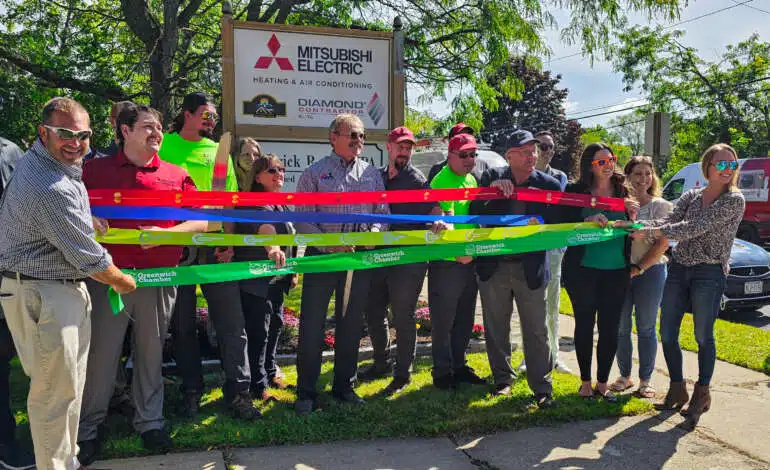Are you tired of high energy bills and looking for a way to eliminate your expenses for heating, air conditioning, and electricity? Look no further than Adirondack Heat Pumps and the innovative technologies from Mitsubishi!
One New York family recently made the switch to Mitsubishi heat pumps and solar technology and completely eliminated their energy bills, saving thousands of dollars per year. Not only that, but they now make money by selling excess energy back to the grid.
By utilizing heat pumps instead of traditional equipment, this family is able to efficiently heat and cool their home without the use of fossil fuels. Mitsubishi heat pumps are up to 300% more efficient than traditional heating and cooling systems, making them a great choice for those looking to reduce their carbon footprint and save money.
In addition, this family’s solar panels provide clean, renewable energy to power their home and their Mitsubishi heat pumps, further reducing their dependence on traditional energy sources.
Making the switch to Mitsubishi heat pumps and solar technology is not only good for your wallet, but good for the environment as well. You can feel good about reducing your carbon footprint and doing your part to combat climate change.
At Adirondack Heat Pumps, we are committed to helping families like yours make the switch to cleaner, more efficient home energy solutions. Contact us today to learn more about how Mitsubishi heat pumps and solar technology can benefit you and your family.
?????????? #EnergyEfficiency #RenewableEnergy #MitsubishiHeatPumps #SolarPower #GreenLiving #LowerEnergyBills #CarbonFootprint #CleanEnergy #Sustainability #SaveMoney #HomeComfort #AdirondackHeatPumps #CleanAir #ComfortableHomes #ClimateChange #FamilySafety #HealthyHomes
Heat Pumps
Heat pumps are an innovative technology that can provide both heating and cooling solutions for homes and buildings. These systems work by transferring heat from one area to another, instead of creating heat like traditional furnaces or air conditioning units.
The process starts with the outdoor unit of the heat pump, which extracts heat from the air or ground and sends it to the indoor unit. The indoor unit then distributes the heat throughout the home using a fan and duct system.
During the summer, the process works in reverse, with the heat pump extracting heat from inside the home and transferring it outside, leaving the interior cool and comfortable.
Heat pumps are extremely efficient, using less energy than traditional HVAC systems. This is because they do not generate heat, but rather move it from one location to another. By using less energy, heat pumps can help homeowners save money on their energy bills while reducing their carbon footprint.
In addition, heat pumps can be used in conjunction with other renewable energy sources such as solar panels. When used together, homeowners can create a fully sustainable energy system for their homes.
Overall, heat pumps are a smart and efficient solution for homeowners looking to heat and cool their homes while reducing their energy usage and carbon footprint.

Solar Power: Become Self-sustaining
Solar power is becoming an increasingly popular way for homeowners to generate their own electricity and reduce their reliance on traditional energy sources. Solar panels, which are typically installed on rooftops, capture sunlight and convert it into usable electricity through a process called photovoltaics.
One of the main benefits of solar power is that it is a renewable energy source. Unlike fossil fuels, which are finite and will eventually run out, the sun’s energy is constantly available and will continue to be so for billions of years.
Another benefit of solar power is that it is a clean energy source. Unlike traditional energy sources such as coal and natural gas, solar power does not release harmful pollutants into the air and does not contribute to climate change.
In addition to these environmental benefits, solar power can also be financially beneficial for homeowners. By generating their own electricity, homeowners can reduce or even eliminate their monthly electricity bills. In some cases, homeowners can even earn money by selling excess electricity back to the grid.
While solar power does require an upfront investment in the form of solar panels and installation costs, the long-term savings can be substantial. And with many states offering incentives and tax credits for solar installations, the cost can be further reduced.
Overall, solar power is an increasingly popular and attractive option for homeowners looking to reduce their environmental impact and save money on energy costs.

Become Self-sustaining
Becoming self-sustaining is a goal for many individuals and families. It means being able to provide for your own basic needs without relying on external resources or systems. This includes being able to produce your own food, generate your own power, and manage your own waste.
One way to achieve self-sustainability is through homesteading. Homesteading is the practice of living off the land and being self-sufficient. This can include growing your own food, raising livestock, and producing your own energy. By producing your own resources, you reduce your reliance on external systems, and are better able to weather economic or environmental changes.
Another way to become self-sustaining is by implementing renewable energy sources, such as solar power. Solar power involves the use of solar panels to convert sunlight into electricity. By generating your own electricity, you can reduce your dependence on the power grid and even sell any excess energy back to the utility company. This can provide financial savings and help reduce your carbon footprint.
In addition to producing your own resources, self-sustainability also involves responsible resource management. This includes reducing waste, recycling, and utilizing eco-friendly practices in all aspects of life. By reducing your environmental impact, you are better able to preserve natural resources for future generations.
In conclusion, become self-sustaining is an admirable goal that can provide numerous benefits. By producing your own resources and managing them responsibly, you can reduce your reliance on external systems and improve your quality of life. With the rise of new technologies and awareness of environmental issues, more and more people are becoming interested in self-sustainability and the positive impact it can have on individuals, families, and communities.



